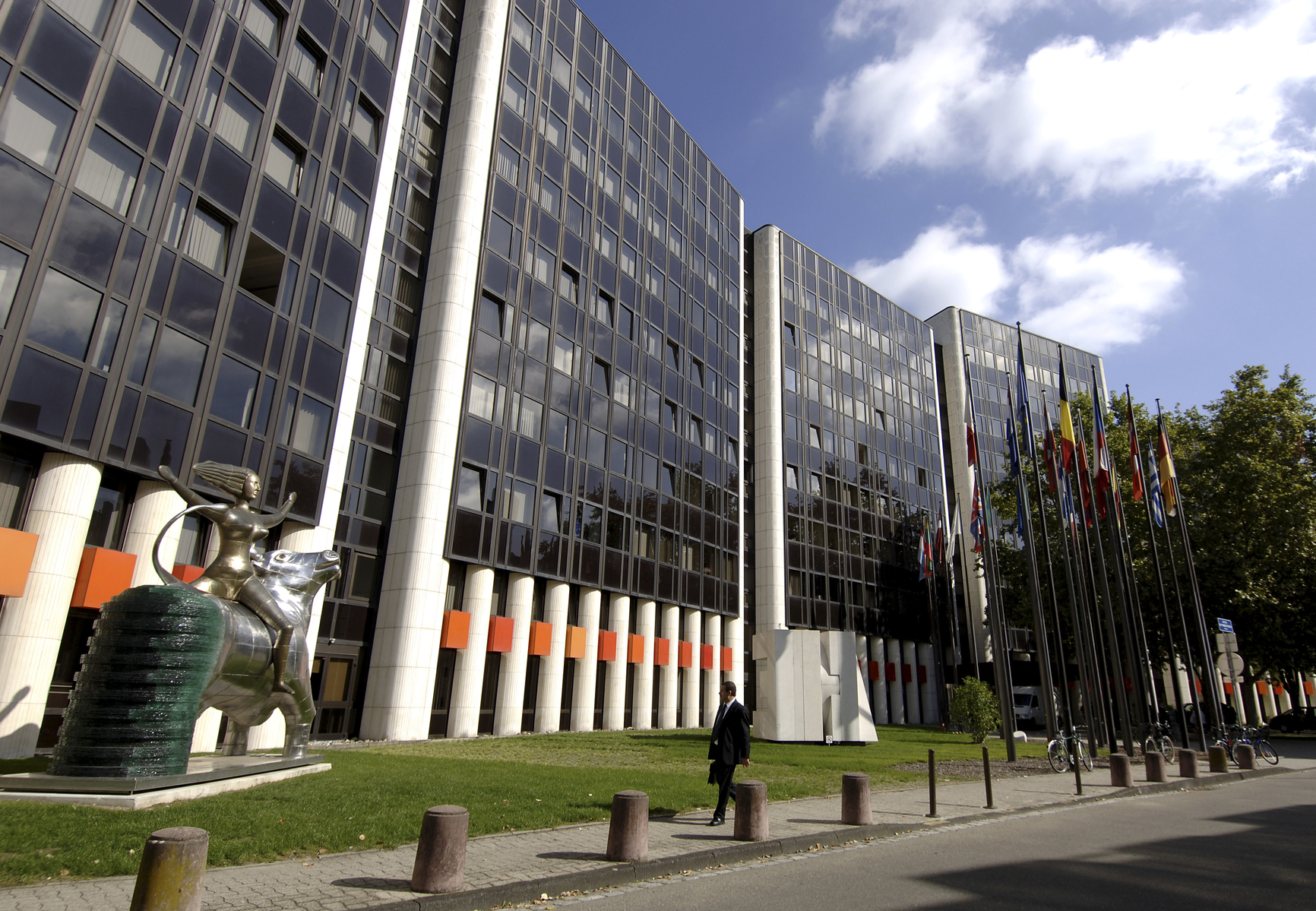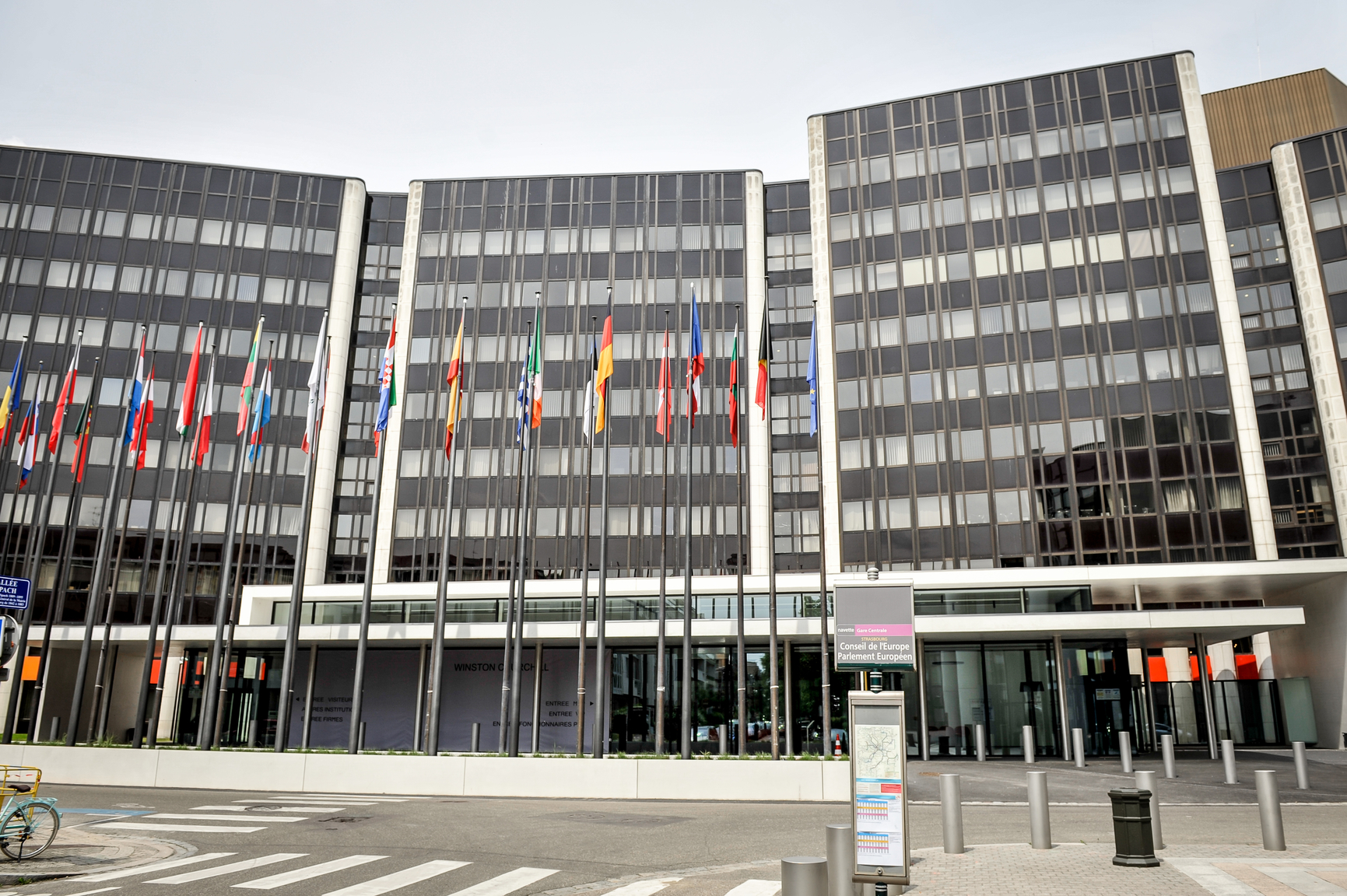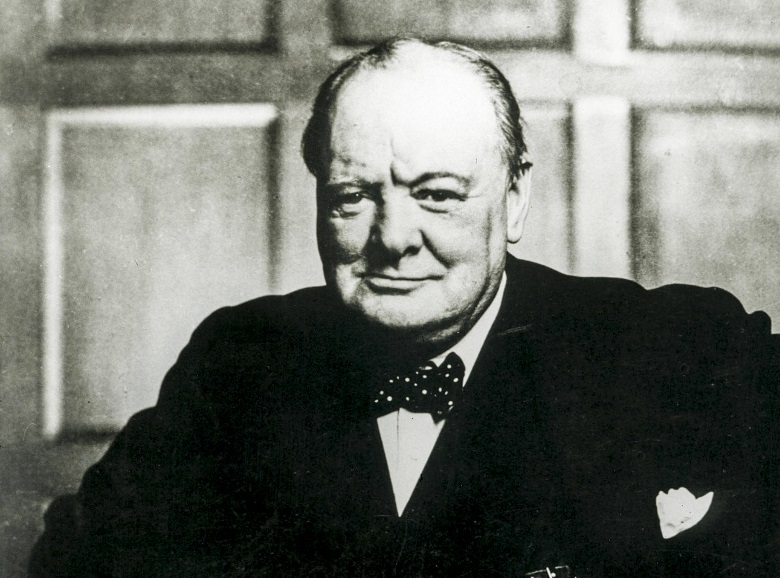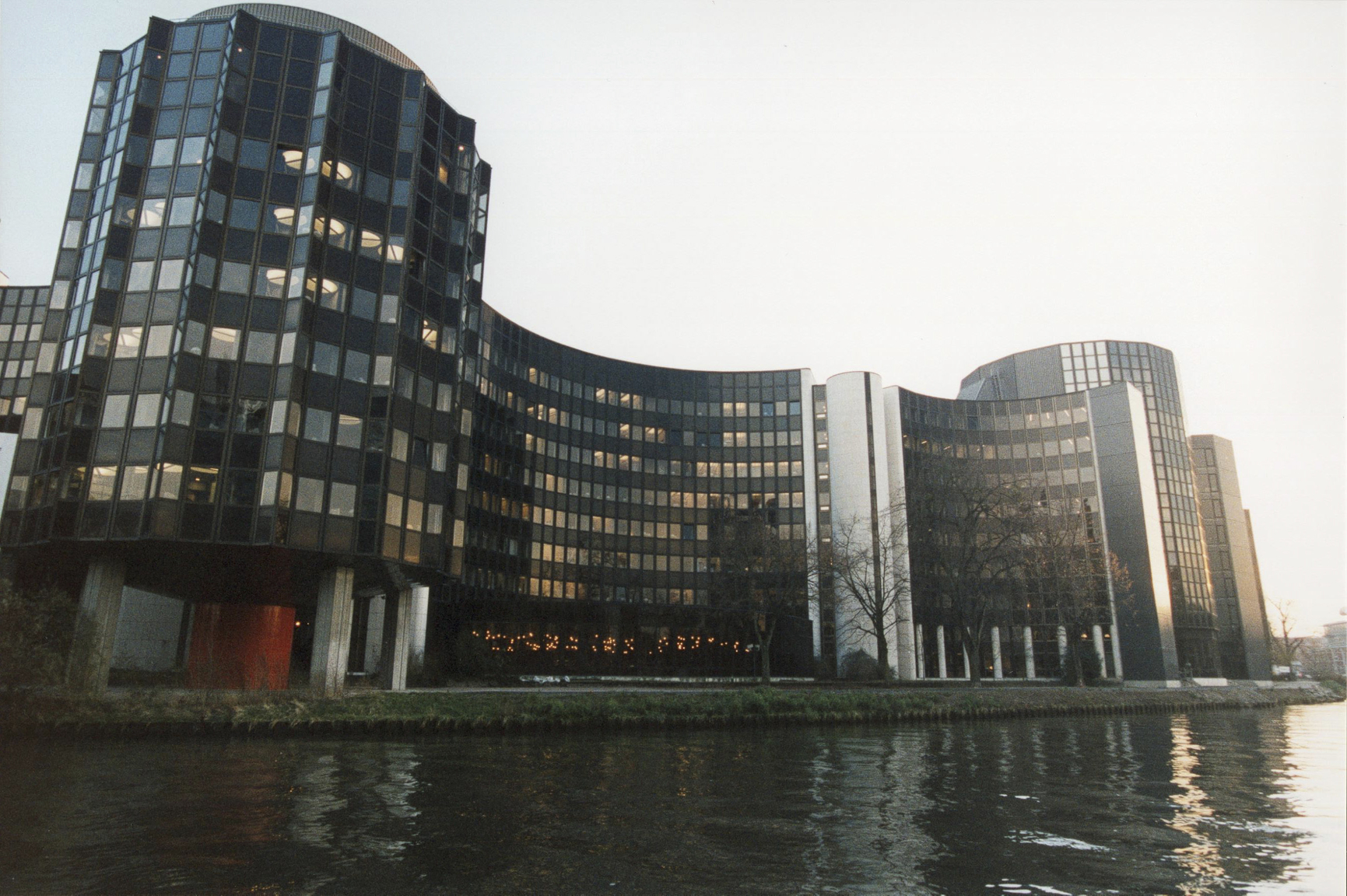 Churchill building in Strasbourg © European Union 2019 – European Parliament
Churchill building in Strasbourg © European Union 2019 – European Parliament
A proponent of European integration and one of the first to call for the creation of a ‘United States of Europe’...
Winston Churchill is without doubt the best known in this series of historical names. Unlike the other ‘founders of Europe’, Churchill figures prominently in our history books for the leading role he played in the Second World War as the British Prime Minister. According to Britain’s wartime leader, the remedy for a Europe that was "free and happy" was "to re-create the European family, or as much of it as we can, and to provide it with a structure under which it can dwell in peace, in safety and in freedom." He famously said "we must build a kind of United States of Europe."
 Entrance to the Churchill building in Strasbourg © European Union 2019 – European Parliament
Entrance to the Churchill building in Strasbourg © European Union 2019 – European Parliament
Early life and politics
Winston Churchill was born on 30 November 1874 into a British aristocratic family. He led a privileged childhood but did not particularly enjoy school. After completing his studies he passed the entrance exam for the Royal Military Academy Sandhurst (at the third attempt). Graduating as a cavalry officer, he began a military career which, within the next five years, would see him fight on three continents, win four medals and be decorated with the Order of Merit. He also wrote five books and was elected to Parliament, all before his 26th birthday.
In a British Army that was involved in the conflicts of Empire, Churchill worked as a war correspondent for the London press. In 1900, after escaping from a POW camp, he returned to England to embark on a career in politics. Initially elected as a Conservative Member of Parliament, he later defected to the Liberals. After 15 years he rejoined the army, taking command of the 6th Battalion of the Royal Scots Fusiliers in the French trenches. When a new government was formed in 1917, Churchill was appointed Minister of Munitions. In the years that followed, until 1929, Churchill held many of the most important ministerial posts, apart from that of foreign affairs.
In 1929, he took a step back from Conservative Party frontline politics (he had formally rejoined the Conservative Party in 1924) and began writing articles and books on history. Churchill was one of the first to recognise the growing threat of Hitler, and to make clear his concerns, many years before the Second World War broke out. He was a fierce critic of the appeasement policy and the Munich Agreement.
 Portrait of the wartime British Prime Minister Winston Churchill after a speech at the House of Commons of Canada on December 30th, 1941 © British National Portrait Gallery
Portrait of the wartime British Prime Minister Winston Churchill after a speech at the House of Commons of Canada on December 30th, 1941 © British National Portrait Gallery
United States of Europe
The outbreak of war in 1939 proved that Churchill’s concerns had been well founded. In May 1940, he became Prime Minister and formed a government of national unity to steer the United Kingdom for the duration of the conflict. His categorical refusal to surrender or to negotiate with the Nazis was the bedrock of British resistance, particularly at the beginning of the war, when his country stood alone in fighting Hitler. Despite this, he lost the election that was held immediately after the war. However, he continued to be involved in international politics.
It was in a speech in Fulton, Missouri, that Churchill first used a phrase that would become synonymous with the Soviet threat to Europe, saying that an ‘iron curtain’ had descended on the continent. In another speech in 1946 he advocated the idea of a ‘United States of Europe’. Winston Churchill was an outstanding orator. He called on Europeans to "turn our backs upon the horrors of the past and look to the future’, and said that the first step in recreating the European fabric was to "build a kind of United States of Europe."
Churchill was one of the first to argue in favour of European integration, in order that the atrocities of the two wars could never happen again. His personal views on the political organisation of Europe were expressed most notably in a famous speech in Zurich in September 1946. In it he called for Franco-German reconciliation and the creation of a Council of Europe, which would ultimately be established on 5 May 1949. Churchill became a member of its Consultative Assembly, using it as a platform.
His preoccupation was Europe’s defence, rather than its economic integration. The idea of a ‘European army’ also came from him. He saw it as a way of protecting the continent and giving teeth to European diplomacy at the time of the Korean war. The European Court of Human Rights was established in 1959, some 10 years after Churchill had given his support to the idea. He called on Europeans to unite in the fight against Nazism and fascism. Nevertheless, as Prime Minister for a second time – from 1951 to 1955 – he did not advocate the United Kingdom participating in the Schuman Plan.
He died in January 1965. Winston Churchill is remembered for his commitment to European unity and as a strong advocate of the European cause.
 Outside view of the European Parliament building Winston Churchill in Strasbourg © European Union - EP © Architect: Architecture Studio
Outside view of the European Parliament building Winston Churchill in Strasbourg © European Union - EP © Architect: Architecture Studio